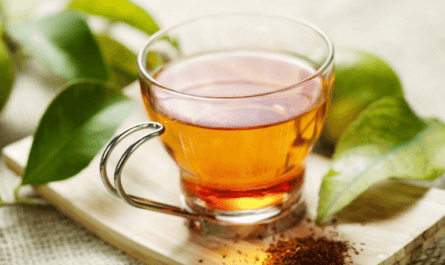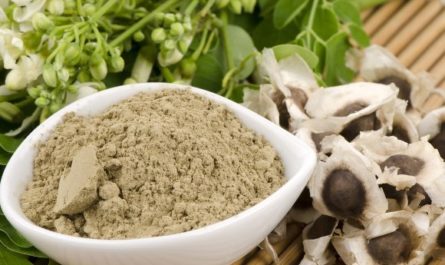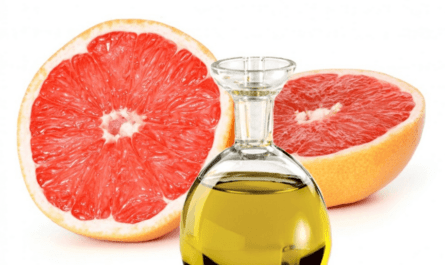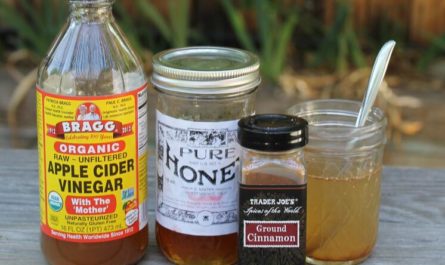Peppermint tea is derived from the leaves of the peppermint plant. It is a refreshing and aromatic beverage that has been enjoyed for its numerous health benefits for centuries. Packed with essential nutrients and therapeutic compounds, this herbal tea offers a wide range of advantages for overall well-being. In this article, we will explore 16 amazing health benefits of peppermint tea.
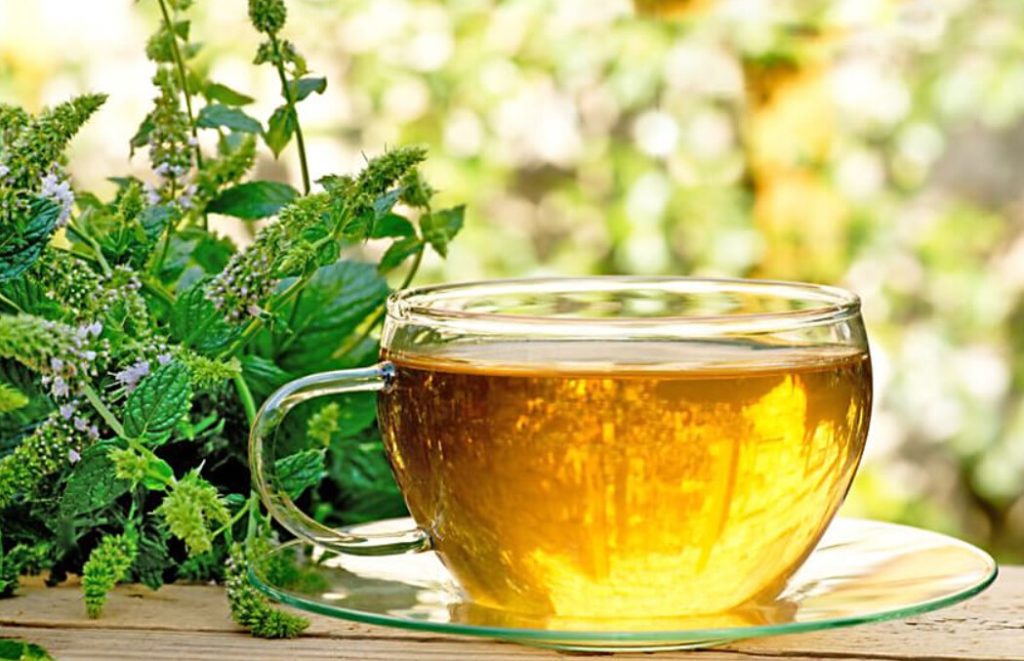
16 Amazing Health Benefits of Peppermint Tea
1. Soothes Digestive Distress
One of the most well-known benefits of peppermint tea is its ability to calm an upset stomach. The menthol in peppermint acts as a muscle relaxant, helping to ease spasms and relieve symptoms like bloating, gas, and indigestion. Studies show that peppermint oil can significantly reduce the severity of irritable bowel syndrome (IBS) symptoms.
Peppermint works its digestive magic by activating an “anti-pain” channel in the colon, which helps reduce visceral pain associated with digestive disorders. It also relaxes the gastric fundus, which can improve the rate of gastric emptying and relieve feelings of fullness and bloating after meals.
2. Freshens Breath
Peppermint’s fresh, minty aroma makes it a natural choice for combating bad breath. The herb contains menthol, menthone, and other compounds with potent antibacterial and antiseptic properties that can help eliminate odor-causing bacteria in the mouth. Sipping on a cup of peppermint tea after meals can leave your breath feeling clean and refreshed.
But peppermint’s oral health benefits don’t stop there. Its anti-inflammatory and antimicrobial properties may also help reduce the risk of gum disease, cavities, and other oral infections.
You can consider swishing with cooled peppermint tea or adding a few drops of peppermint essential oil to your toothpaste for an extra minty-fresh boost.
3. Boosts Energy and Focus
Need a pick-me-up without the jitters of caffeine? Peppermint tea may be just the thing. The invigorating aroma of peppermint has been shown to enhance memory, increase alertness, and improve concentration.
The menthol in peppermint is thought to stimulate the hippocampus, the area of the brain responsible for memory and mental clarity. So the next time you need to power through a mentally demanding task, brew yourself a cup of peppermint tea and let the minty a Here is the article continued with the same style, tone, and format:
4. Relieves Tension Headaches
If tension headaches have you down, peppermint tea could offer sweet relief. The menthol in peppermint acts as a natural muscle relaxant, helping to ease the tightness and tension that can contribute to headaches. Simply inhaling the minty aroma may be enough to alleviate mild headache pain.
But peppermint’s headache-fighting powers don’t stop there. Its anti-inflammatory properties can also help reduce inflammation, which is a major contributing factor to headaches and migraines. Try applying a cooled peppermint tea compress to your forehead or temples for a soothing, cooling sensation.

5. Promotes Healthy Respiratory Function
Peppermint’s cooling menthol can help clear congestion and open up airways, making it easier to breathe. Sipping on a warm cup of peppermint tea can soothe a sore throat and loosen mucus, providing relief from coughs, colds, and respiratory issues like bronchitis.
The menthol in peppermint acts as a natural decongestant and expectorant, helping to thin out and expel mucus from the lungs and nasal passages. It can also relax the smooth muscles of the respiratory tract, allowing for easier breathing.
6. Supports Healthy Skin
Thanks to its anti-inflammatory, antiseptic, and antibacterial properties, peppermint may help promote clear, glowing skin.
The cooling sensation of peppermint can also help soothe redness, irritation, and itchiness associated with conditions like eczema and rosacea. Try applying cooled peppermint tea to the skin or adding it to a face mist for a refreshing boost.
Peppermint’s skin-soothing benefits may also extend to reducing the appearance of wrinkles and fine lines. The vitamin C and other antioxidants in peppermint can help neutralize free radicals that contribute to premature aging of the skin.
7. Aids in Weight Management
Peppermint tea may be a helpful addition to a weight loss regimen. The aroma of peppermint has been shown to increase feelings of fullness and reduce cravings, which could lead to consuming fewer calories.
Additionally, peppermint’s ability to soothe digestive issues like bloating and gas can help reduce discomfort associated with overeating.
The menthol in peppermint may also give your metabolism a slight boost by increasing thermogenesis – the process by which the body burns calories to produce heat. While the effects are modest, every little bit can help when you’re trying to shed excess pounds.
8. Promotes Healthy Hair
Peppermint’s invigorating properties aren’t just limited to your insides – they can benefit your hair, too! The menthol in peppermint is thought to increase blood circulation to the scalp. This can promote hair growth and strength. Try rinsing your hair with cooled peppermint tea or adding a few drops of peppermint essential oil to your shampoo for a tingling, refreshing boost.
The antimicrobial and antiseptic properties of peppermint may also help keep your scalp healthy by warding off fungal infections and dandruff. Plus, the minty aroma can leave your locks smelling fresh and clean.

9. Relieves Muscle Pain and Tension
Sore muscles got you down? Peppermint’s cooling menthol has natural pain-relieving and anti-inflammatory properties that can help soothe muscle aches and pains.
Apply a cooled peppermint tea compress to affected areas or add a few drops of peppermint essential oil to a warm bath for a relaxing, therapeutic soak.
The menthol in peppermint works by activating kappa-opioid receptors in the body, which can help reduce pain perception. It also has a cooling sensation that can temporarily dull muscle pain and discomfort. For best results, combine peppermint with other pain-relieving herbs like ginger or turmeric.
10. Supports Healthy Immune Function
Peppermint tea is rich in antioxidants like vitamin C, vitamin A, and flavonoids that can help bolster your immune defenses. These powerful compounds help neutralize harmful free radicals and reduce inflammation, keeping your body’s defense system operating at its best.
The antimicrobial properties of peppermint may also help fight off harmful bacteria, viruses, and fungi that can cause illness. Sipping on peppermint tea during cold and flu season may help ward off pesky bugs and keep you feeling your best.
11. Improves Sleep Quality
Having trouble sleeping? A warm cup of caffeine-free peppermint tea before bed may be just what you need. Peppermint’s muscle-relaxing properties can help ease tension and promote a sense of calm.
This makes it easier to drift off into a restful slumber. The aroma of peppermint has also been shown to improve sleep quality and reduce insomnia.
But peppermint’s sleep-promoting benefits don’t stop there. It may also help regulate your body’s natural sleep-wake cycle by influencing melatonin levels. Melatonin is the hormone that controls your circadian rhythms, so keeping it in balance can lead to more restorative sleep.
12. Regulates Blood Sugar Levels
Emerging research suggests that peppermint may help regulate blood sugar levels, making it a potential ally for those with diabetes or at risk for the condition.
The menthol in peppermint appears to have an insulin-sensitizing effect, allowing cells to more effectively utilize glucose and reducing spikes in blood sugar.
Peppermint may also inhibit certain enzymes that aid in the breakdown of starches into sugars, slowing the absorption of glucose into the bloodstream. This can help prevent dramatic fluctuations in blood sugar that can be harmful to diabetics.
13. Supports Oral Health
Peppermint’s antibacterial and anti-inflammatory properties make it a natural choice for promoting oral health. Swishing with peppermint tea can help kill harmful bacteria in the mouth, reducing the risk of cavities, gum disease, and bad breath. The menthol in peppermint may also help relieve toothache pain and soothe inflamed gums.
The antiseptic compounds in peppermint can also help inhibit the growth of streptococcus mutans, the bacteria primarily responsible for tooth decay. Incorporating peppermint tea into your oral hygiene routine may help keep your teeth and gums healthy and strong.
14. Enhances Cognitive Function
In addition to boosting focus and concentration, peppermint may offer broader cognitive benefits. Some research suggests that the aroma of peppermint can improve memory and processing speed, potentially offering a natural way to enhance brain function.
The menthol in peppermint appears to increase blood flow to the brain, delivering more oxygen and nutrients to support optimal cognitive performance. Peppermint may also help protect brain cells from oxidative stress and inflammation, which can contribute to age-related cognitive decline.
15. Alleviates Nausea and Vomiting
Peppermint’s stomach-soothing properties make it a go-to remedy for nausea and vomiting. Studies show that peppermint oil can significantly reduce nausea and vomiting in patients undergoing chemotherapy or surgery.
Sipping on cool peppermint tea may help calm an unsettled stomach and provide relief from morning sickness or motion sickness.
The menthol in peppermint is thought to relax the smooth muscles of the digestive tract, reducing spasms and contractions that can contribute to nausea. It may also help improve gastric emptying, preventing the buildup of stomach contents that can trigger vomiting.
16. Promotes Healthy Aging
With its potent antioxidant and anti-inflammatory properties, peppermint tea may help support healthy aging and longevity.
The compounds in peppermint can help neutralize free radicals, reduce oxidative stress, and protect cells from damage, potentially reducing the risk of age-related diseases like Alzheimer’s, cancer, and heart disease.
Peppermint is also rich in nutrients like vitamin B, iron, magnesium, calcium, and omega-3 fatty acids. All of which play crucial roles in maintaining overall health as we age. Incorporating peppermint tea into your diet may help ensure you’re getting an adequate supply of these vital nutrients.
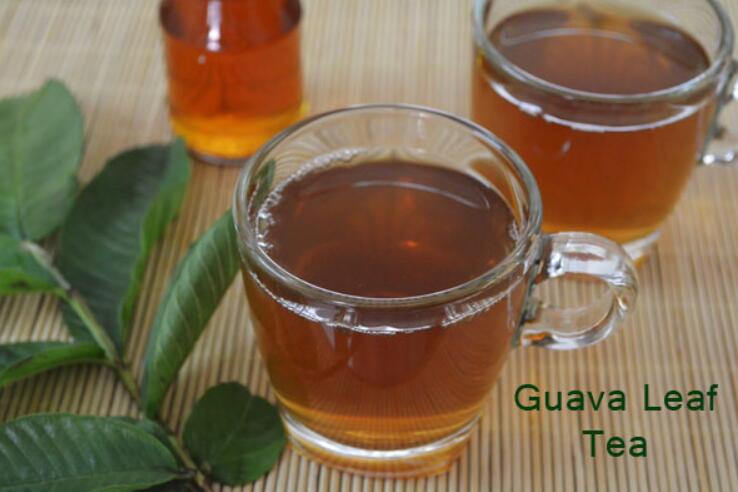
How to Take Peppermint Tea Safely?
To safely consume peppermint tea and maximize its benefits, consider the following guidelines:
1. Choose High-Quality Tea
Opt for high-quality peppermint tea made from organic peppermint leaves. This ensures that you are getting a pure product without added chemicals or pesticides.
2. Brew the Tea Properly
Follow the brewing instructions provided on the tea packaging to ensure that you are extracting the optimal flavor and beneficial compounds from the tea leaves. Typically, steeping the tea bag or loose leaves in hot water for 5-10 minutes is sufficient.
3. Moderate Consumption
While peppermint tea is generally safe, it is best to consume it in moderation. Aim for 1-2 cups per day to avoid potential side effects and to allow your body to adjust to the tea gradually.
4. Observe Your Body’s Response
Pay attention to how your body reacts to peppermint tea. If you experience any adverse effects, such as allergic reactions, digestive discomfort, or worsened acid reflux, discontinue use and consult with a healthcare professional.
5. Consider Time of Consumption
If you have gastroesophageal reflux disease (GERD) or a history of acid reflux, it may be best to consume peppermint tea between meals rather than immediately before or after eating. This can help minimize the relaxation of the lower esophageal sphincter, which can contribute to reflux symptoms.
6. Be Aware of Interactions
If you are taking any medications, consult with your healthcare provider to ensure that there are no potential interactions between the medications and peppermint tea. This is particularly important for medications related to blood pressure, diabetes, and antacids.
7. Children and Pregnant or Breastfeeding Individuals
Use caution when giving peppermint tea to young children, especially infants, as their systems may be more sensitive to the effects of menthol. Pregnant and breastfeeding individuals should consult with their healthcare provider before consuming peppermint tea.
Precautions When Taking Peppermint Tea
While peppermint tea is generally safe for most people to consume, there are a few precautions to keep in mind:
1. Allergies
Some individuals may be allergic to peppermint. If you have a known allergy to mint or experience symptoms such as hives, itching, or difficulty breathing after consuming peppermint tea, discontinue use and seek medical attention.
2. Gastroesophageal Reflux Disease (GERD)
Peppermint tea can relax the lower esophageal sphincter, which may worsen symptoms of GERD or acid reflux in some individuals. If you have GERD or a history of acid reflux, it is best to consult with your healthcare provider before consuming peppermint tea.
3. Medication Interactions
Peppermint tea may interact with certain medications, including antacids, blood pressure medications, and medications for diabetes. If you are taking any medications, it is advisable to consult with your healthcare provider before incorporating peppermint tea into your routine.
4. Gallbladder Issues
Peppermint tea may cause the gallbladder to contract, potentially triggering symptoms in individuals with gallbladder problems or a history of gallstones. If you have a gallbladder condition, it is best to consult with your healthcare provider before consuming peppermint tea.
5. Interference with Iron Absorption
Peppermint tea may interfere with the absorption of iron from food and supplements. If you have anemia or are taking iron supplements, it is advisable to consume peppermint tea separately from iron-rich foods or supplements to maximize iron absorption.
6. Surgery
Peppermint tea can have a relaxing effect on the muscles, including the muscles of the gastrointestinal tract. If you have an upcoming surgery, it is advisable to stop consuming peppermint tea a few weeks before the procedure. Because it may interfere with anesthesia and muscle relaxation.

